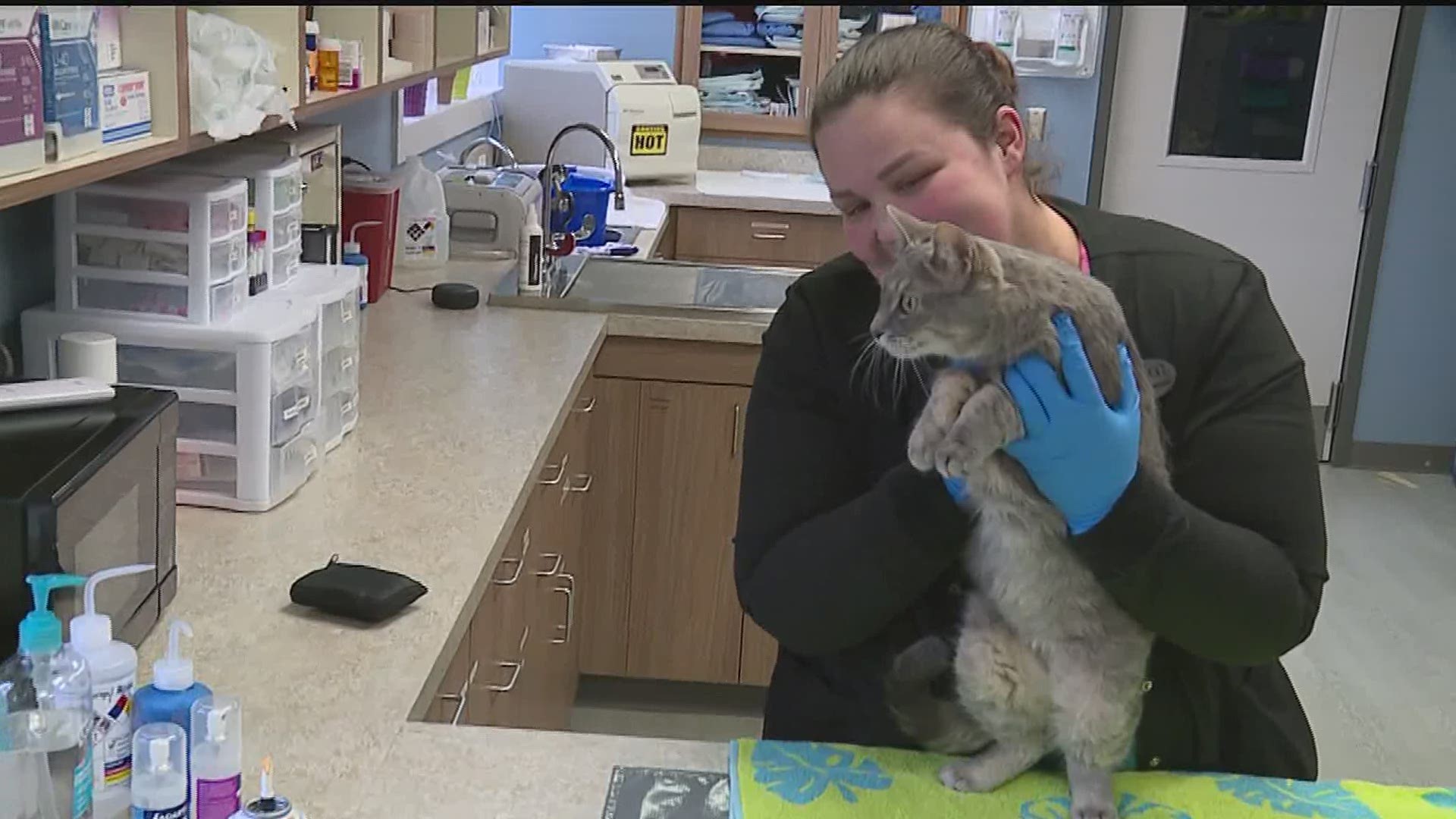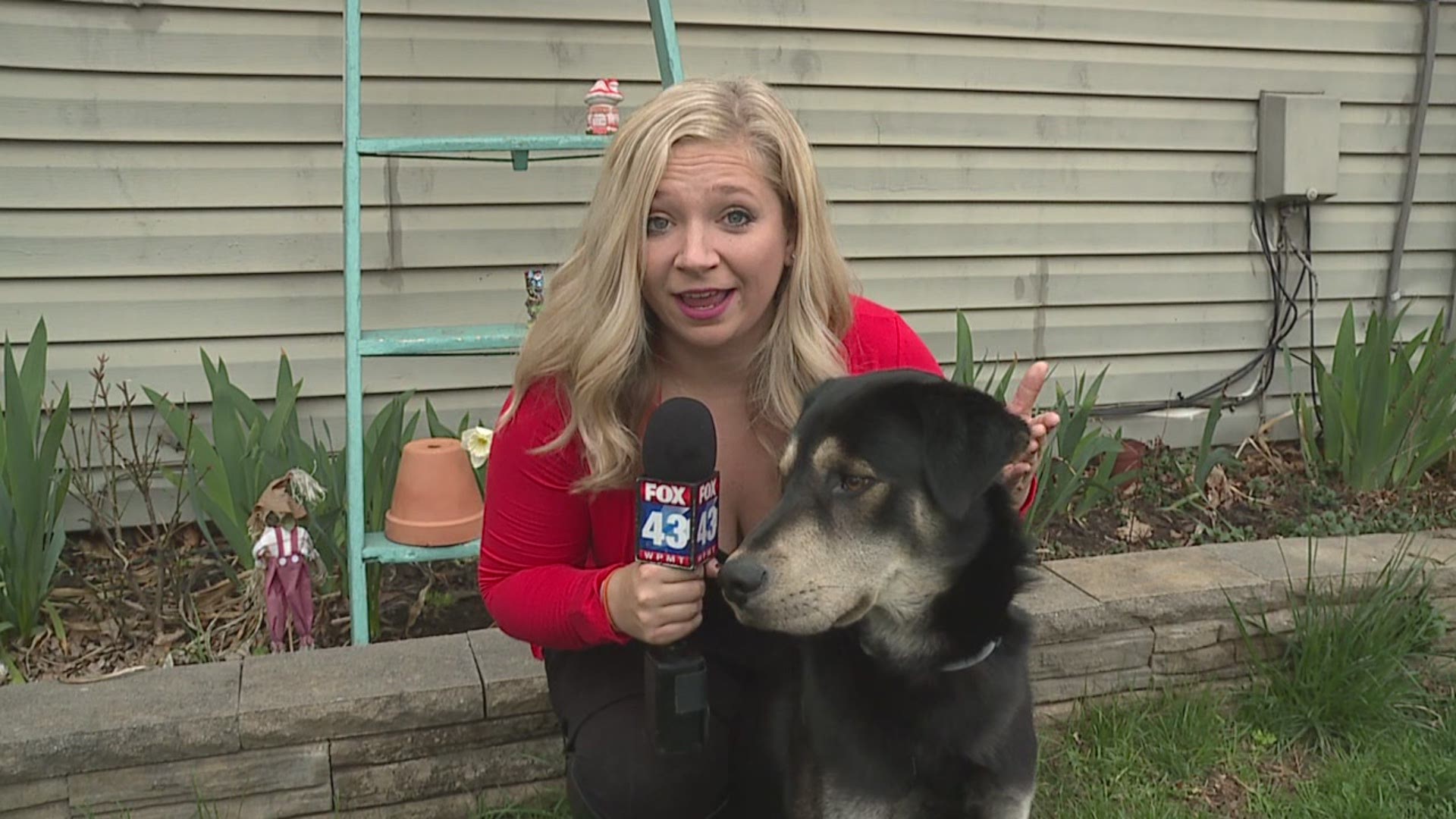LANCASTER COUNTY, Pa. — It’s safe to say COVID-19 has had an impact on every aspect of life for humans and even their four-legged friends.
Veterinarians have a new tool at their disposal to keep pets and their owners healthy.
Technicians with Healing Paws Animal Hospital in East Hempfield Township, Lancaster County are taking preventative measures.
“We veterinarians are taking major steps to stop the spread of COVID-19,” explained Dr. Carrie Vigeant, the owner of Healing Paws.
Technicians are triaging pets outside and over the phone in an effort to mitigate the spread of germs.
“I think a lot of people are kind of enjoying this concierge appointment experience,” laughed Dr. Vigeant. “Who wants to come to the vet? It's like stressful. It's like going to the dentist or the doctor so they pull up, the kids are in the car. We come get the dog. We do what needs to be done. They pay over the phone. The dog comes back. It's like everyone's happy.”
If they so choose, pet owners can keep a watchful eye on their fur babies during their appointments. There is a window into the treatment room which allows a little more transparency.
“We really try to embrace transparency; we're really focused on client and creature comfort,” said Dr. Vigeant.
Clients can also video call into the appointment or anytime their animal is having an issue, thanks to telemedicine. COVID-19 is forcing vets across the state to adapt.
“We can now offer that with much less restrictions. Before we had to have seen that pet, a patient within a year, to be able to prescribe diagnose or treat, and now, they're leaving it up to us in our medical judgment to decide,” explained Dr. Vigeant.
Even while working through a pandemic, Dr. Carrie Vigeant is happy and thankful business is doing okay.
“In lieu of everything, you know, it always could be better, but my God, it could always be worse,” she said.
Healing Paws utilizes Vet2Pet applications for iPhone and Android for its telemedicine program.
In York County, Hill Street Veterinary Hospital is taking similar measures. It has changed its hours, and technicians are also meeting clients and their four-legged friends outside the hospital, which you can read about below.
The American Veterinary Medical Association has also provided guidance for veterinarians and their clinics.
One question asks, "Can pets serve as fomites in the spread of COVID-19?"
According to its website, "COVID-19 appears to be primarily transmitted by contact with an infected person’s bodily secretions, such as saliva or mucus droplets in a cough or sneeze. COVID-19 might be able to be transmitted by touching a contaminated surface or object (i.e., a fomite) and then touching the mouth, nose, or possibly eyes, but this appears to be a secondary route. Smooth (non-porous) surfaces (e.g., countertops, door knobs) transmit viruses better than porous materials (e.g., paper money, pet fur), because porous, and especially fibrous, materials absorb and trap the pathogen (virus), making it harder to contract through simple touch. Because your pet’s hair is porous and also fibrous, it is very unlikely that you would contract COVID-19 by petting or playing with your pet. However, because animals can spread other diseases to people and people can also spread diseases to animals, it’s always a good idea to wash your hands before and after interacting with animals; ensure your pet is kept well-groomed; and regularly clean your pet’s food and water bowls, bedding material, and toys."
You can read more about that here.



